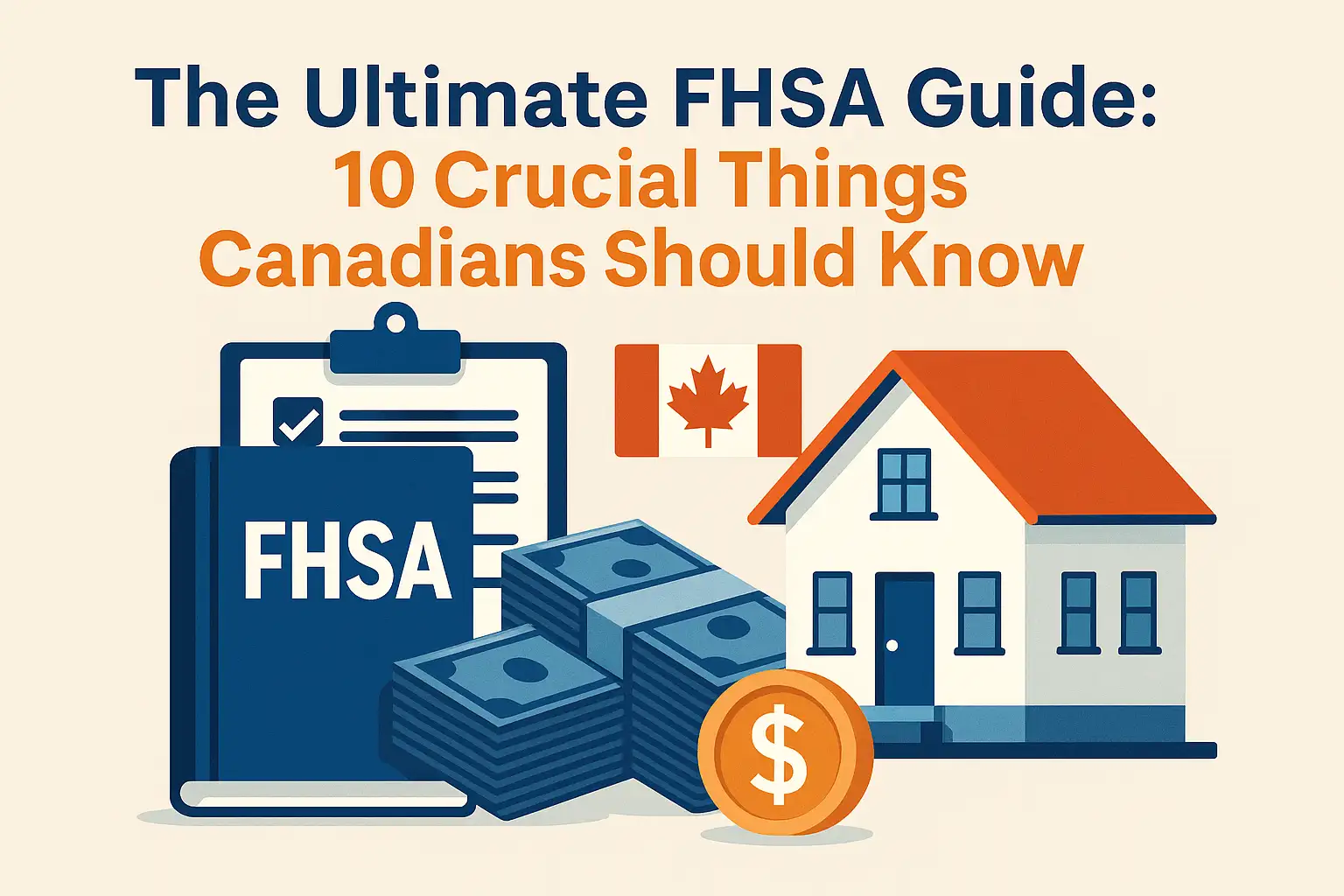Introduction
Buying your first home is an exciting milestone—but in Canada’s challenging housing market, saving enough money can feel overwhelming. Enter the First Home Savings Account (FHSA), a specialized financial tool designed specifically for Canadians aiming to purchase their first home, combining tax advantages and practical benefits to accelerate your journey to homeownership.
But what exactly is an FHSA, and how can it benefit you as a first-time buyer? In this comprehensive guide, we’ll unravel the FHSA, highlighting every aspect from eligibility to advanced strategies for optimal utilization. Whether your home-buying timeline is short-term or you’re strategically planning for the future, you’ll gain clear, pragmatic insights to inform your financial decisions confidently.
Ready to master Canada’s FHSA? Let’s get started.
Understanding the Basics of FHSA
Eligibility Requirements
- Age & Residency: You must be at least 18 years old, a Canadian resident, and hold a valid Social Insurance Number (SIN).
- First-Time Buyer Definition: Neither you nor your spouse/common-law partner can have owned a primary residence in the past four calendar years.
- Intended Use: The account must explicitly be for the purchase of your first primary residence in Canada.
Contribution Limits and Timelines
Annually, you can contribute up to $8,000, with an overall lifetime contribution limit of $40,000. Contributions can be made over 15 years or until you reach the age of 71, whichever occurs first. Unused annual contribution room can carry forward to subsequent years.
Tax Benefits Explained
FHSA provides two exceptional tax incentives:
- Tax-Deductible Contributions: Contributions made reduce your taxable income, providing immediate tax relief.
- Tax-Free Growth and Withdrawals: The growth in your account is tax-free, and withdrawals for your home purchase remain untaxed, boosting your purchasing power significantly.
FHSA vs. RRSP vs. TFSA: Detailed Comparison
| Feature | FHSA | RRSP | TFSA |
|---|---|---|---|
| Contributions | Tax-deductible | Tax-deductible | After-tax dollars |
| Withdrawals for Home | Tax-free | Taxable unless under HBP | Tax-free |
| Contribution Limit | $8k/year; $40k total | 18% of previous year’s income (subject to annual cap) | $6,500 (2024), accumulative |
| Intended Purpose | First home purchase | Retirement savings, home purchase under HBP | Flexible savings purposes |
Detailed FHSA Rules and Guidelines
How to Open an FHSA
- Choose a qualified FHSA provider (banks, credit unions, financial brokers).
- Provide identification, confirm eligibility, and complete necessary paperwork.
- Begin contributions immediately after account activation.
Making Contributions
- Consider regular monthly contributions to steadily build savings.
- Maximize your account through annual lump-sum contributions to optimize immediate tax deductions.
Withdrawal Rules for Home Purchase
- Funds withdrawn must be directly utilized towards your home purchase within 30 days.
- Ensure compliance with eligibility criteria to maintain tax-free status.
FHSA Closure and Management of Unused Funds
- After 15 years or upon reaching age 71, remaining funds may transfer tax-free to your RRSP or RRIF.
- Withdrawals for non-home purchase purposes become taxable.
Advanced Tax Strategies for Your FHSA
- Maximizing immediate tax benefits through strategic contribution timing.
- Leveraging tax-free growth potential to increase your home-buying capacity.
Common Tax Pitfalls and Solutions
- Over-contribution and related penalties (avoid by carefully tracking limits).
- Withdrawals used improperly for non-eligible expenses (these become taxable).
Maximizing Your FHSA Benefits
Combining FHSA and the Home Buyers’ Plan (HBP)
Leverage FHSA alongside RRSP’s Home Buyers’ Plan (HBP) strategically to maximize your down payment and purchasing power.
Effective FHSA and RRSP Fund Transfers
In some cases, transferring funds from an RRSP to an FHSA can be beneficial, especially if you haven’t yet maximized your FHSA contribution room. While the RRSP provides tax-deductible contributions, moving those funds into an FHSA can allow for tax-free withdrawals when buying your first home. This strategy preserves your tax advantages while potentially giving you more flexible access to your money when you’re ready to purchase a home.
Investment Options within FHSA
Invest your FHSA funds in stocks, exchange-traded funds (ETFs), mutual funds, and guaranteed investment certificates (GICs), each providing varied risk-reward opportunities.
Selecting the Best FHSA Providers in Canada
Banks vs. Online Brokers: In-Depth Analysis
- Banks: Offer security, ease of use, and integration with daily banking but limited investment flexibility.
- Online Brokers: Provide low-cost investments, extensive choices, and enhanced flexibility, ideal for active investors.
Top Recommended FHSA Providers
- TD Canada Trust: Ideal for convenience, reliability, and straightforward banking.
- Questrade: Cost-effective platform with wide-ranging investment products.
- Wealthsimple: User-friendly, suitable for beginners with automated investment options.
Common Mistakes and How to Avoid Them
- Stay vigilant about contribution limits to avoid penalties.
- Clearly understand eligible criteria for home buying to prevent tax implications.
- Only withdraw FHSA funds when fully prepared to finalize a home purchase within specified timelines.
Comprehensive FAQs about FHSA
- Can RRSP funds be transferred into an FHSA? Yes, provided you meet specific conditions for tax-free transfers.
- Can I utilize FHSA for investment properties? No, FHSA is explicitly designated for purchasing your primary residence.
- What happens to FHSA funds if not used for home-buying? Funds become taxable unless transferred tax-free into an RRSP or RRIF.
- Must the FHSA close after buying my home? Yes, your FHSA must close within one year of withdrawing funds for your home purchase.
- Can spouses open separate FHSAs? Absolutely—this strategy doubles potential savings and tax benefits.
Conclusion
Navigating homeownership in Canada can feel challenging, but the FHSA simplifies this journey by providing powerful incentives and straightforward rules designed specifically for first-time buyers. With a clear understanding of eligibility, tax advantages, contribution limits, and strategic utilization, you can confidently pursue your dream home.
Ready for your next steps? Pragmatic Mortgage is here to support you every step of the way.










